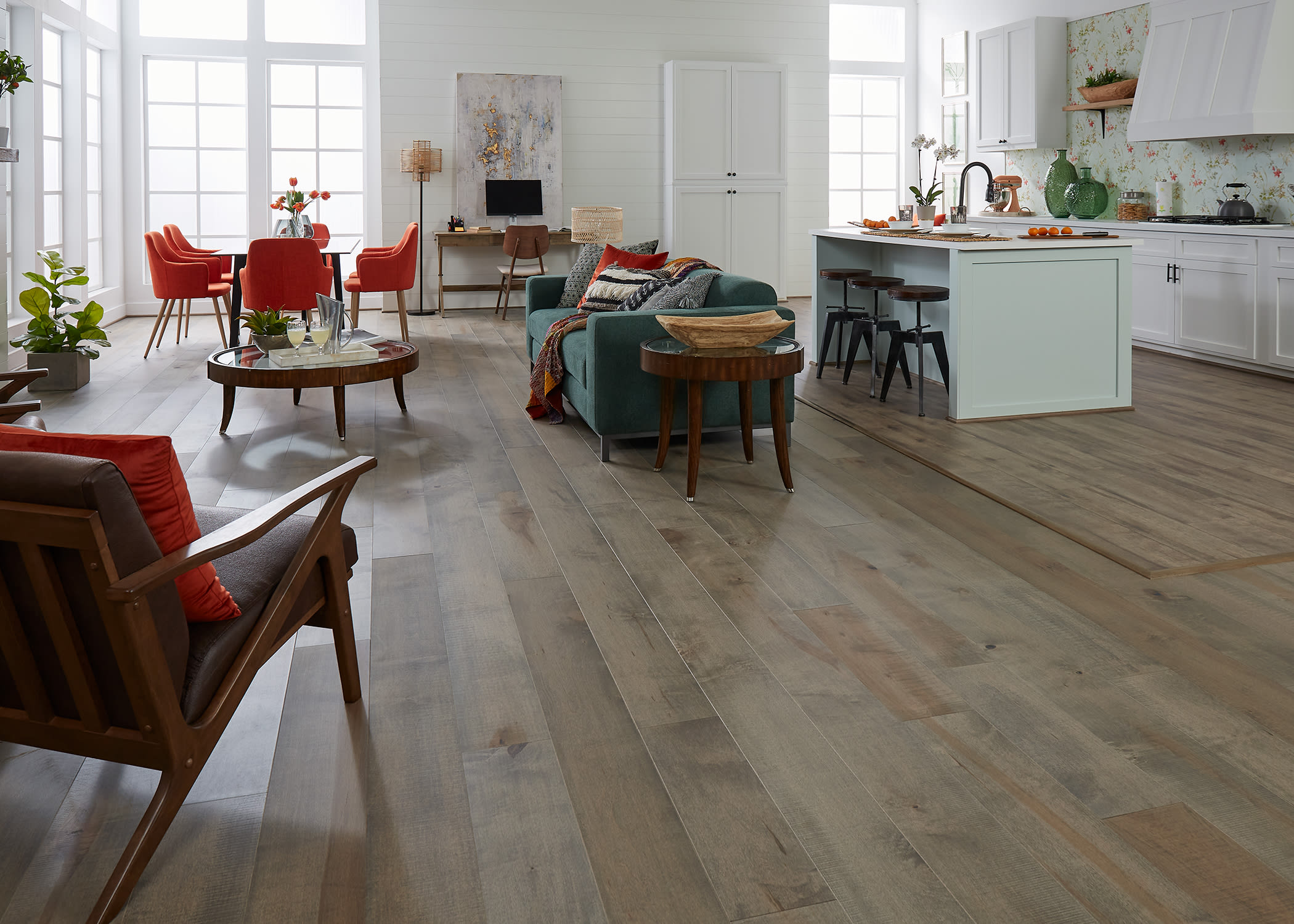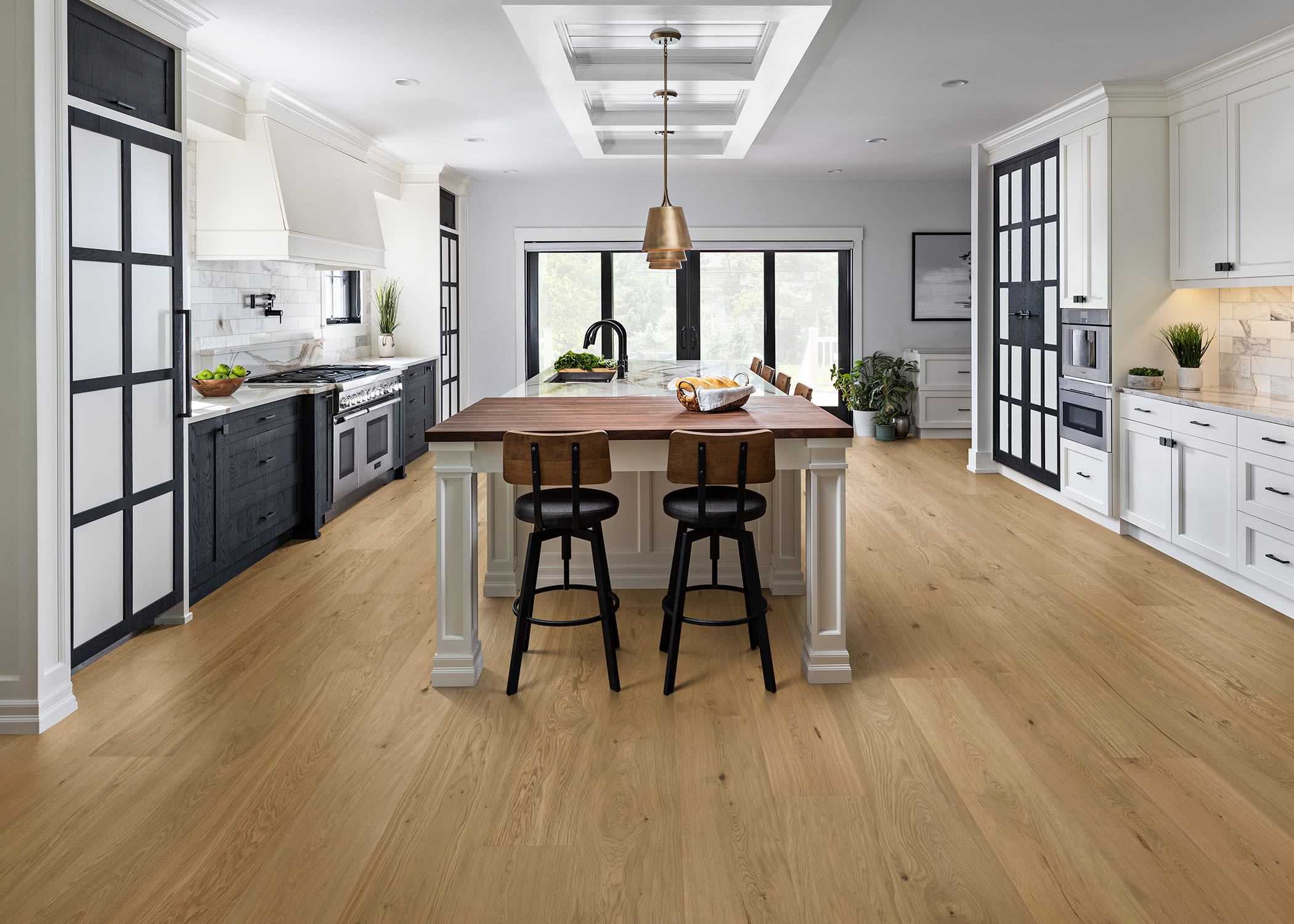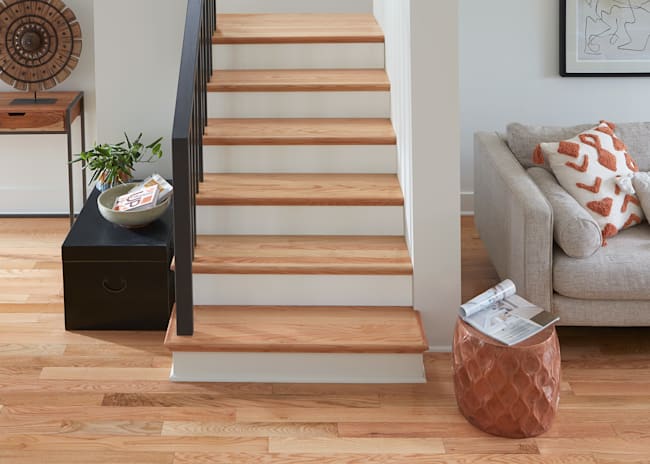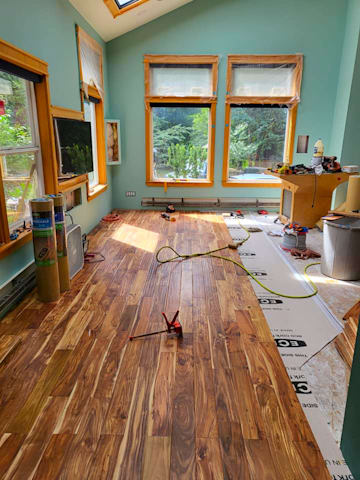- Home
- Inspiration
- Style Tips
- Floor Focus: Engineered Hardwood 101
Floor Focus: Engineered Hardwood 101
Engineered hardwood and solid hardwood are very similar and it can be confusing to try to choose between them.
Although we love all of our flooring products equally, this month our floor focus is on engineered hardwood. Engineered hardwood and solid hardwood are very similar and it can be confusing to try to choose between them. As flooring experts, we’re here to explain all the nitty-gritty details and help you make the right choice for your needs.
Neither solid hardwood or engineered, or laminate, or vinyl for that matter, is better than the other. The best choice comes down to your space needs and your style wants. Here we’re diving into the qualities, advantages, and proper installation of engineered hardwood, the younger, more stable sibling of solid hardwood.

What is engineered hardwood?
Hardwood floors are as classic and timeless as they come—for hundreds of years, builders and homeowners have relied on wood to provide hardy, lasting flooring. As other flooring materials have come and gone, hardwood remains the go-to choice to add natural warmth and support for whatever life may bring into your home.
Innovation and improved technology have resulted in the rise of engineered hardwood, offering a whole new set of benefits and options. Engineered hardwood is more budget-friendly, more resistant to changes in humidity and temperature, and more DIY-friendly than its solid counterpart.
While solid hardwood planks are single pieces of wood, engineered hardwood is constructed with a thin layer of hardwood adhered to a dense, highly durable core, making it much more stable and warp-resistant. The core of an engineered hardwood plank can be made of plywood, lumber, stone polymer composite (SPC) or MDF.
Because the real wood layer of an engineered hardwood floor is much thinner, these floors are often more affordable than solid hardwood. The wood veneer also allows for style options like ultra-wide planks, that are simply impractical with solid wood.
LL Flooring offers a wide variety of trending engineered styles, from the light, warm tones of Faroe Island White Oak from the Era Collection to the deep, dark finish of Bellawood Appalachian Mountain Red Oak.

How should I have it installed?
Installation is one of the big differentiators between engineered and solid hardwood—because of its core, engineered hardwood has more installation method options and works with a greater variety of subfloors.
While solid hardwood requires nail-down or glue-down installation, engineered hardwood can be nailed down, floated, or glued down. Its click-lock edges allow for relatively simple easy-click floating installation, making it a more DIY-friendly option for those who are less inclined to take on the challenges of a nail-down or glue-down project.
Where is it best to use engineered hardwood?
Engineered hardwood is a good choice for any level of the home, yes even basements and areas where the relative humidity fluctuates more than the recommended levels for solid wood,—although places with wetter, more consistently very moist environments aren’t ideal for either type of hardwood.
Every type of flooring has unique benefits, so the choice ultimately boils down to budget, location, and needs. Engineered hardwood is a great option for those who favor style, stability, and ease of installation.
Remember, Engineered Hardwood Is Real Wood: Pay Attention to Arrangement
In the video below, flooring installation expert Mark shows what to think about in order to arrange planks at the moment before installation. After all, some planks may be from the same tree!
To learn more home improvement and flooring tips please subscribe to the LL Flooring YouTube Channel, leave comments, and join the community!
Post your photo on Facebook or Instagram and tag @LLFlooringOfficial for a chance to be featured on our page!





